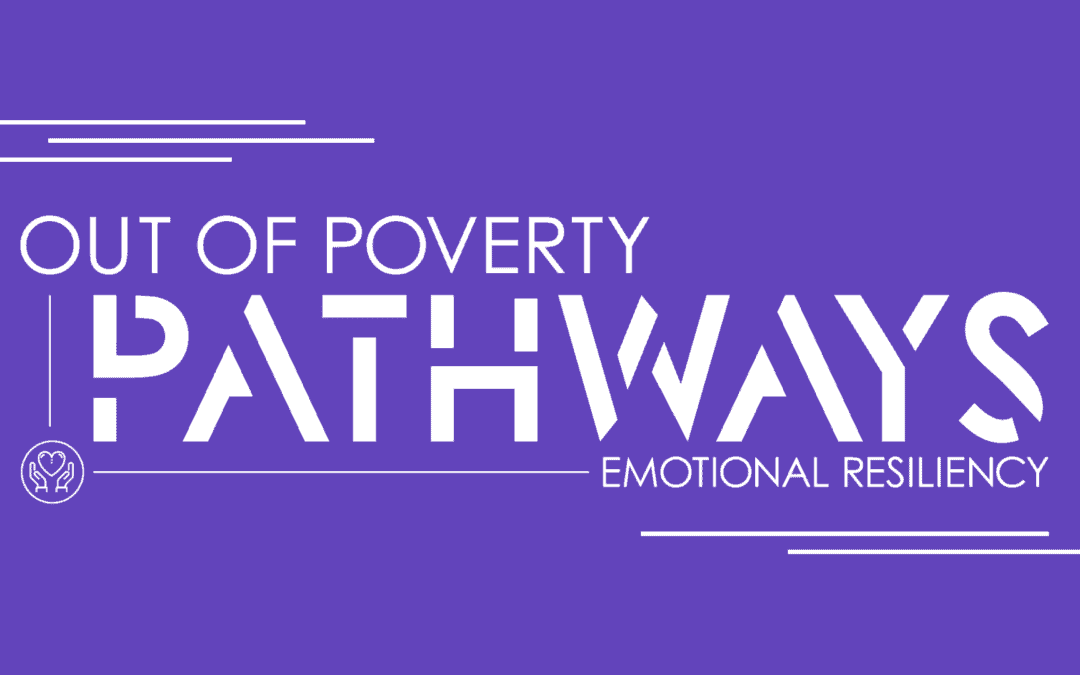The road of emotional resiliency
Have you ever struggled with long-term planning or decision-making? Or found yourself acting out against those around you because of your own stress? How old were you when you learned to regulate your emotions and problem solve your way to a stable solution?
Emotional resiliency is arguably a lifelong journey, an ebb and flow, for all humans. But a supportive childhood environment, healthy role models, and gradual experience usually make the process much easier. However, introduce any form of trauma, including an inability to meet your basic needs, and the story changes entirely. For many of our clients, that’s the only road they’ve ever known – one that makes mental and emotional development much more difficult and complex.
Poverty & brain science
Our long-term case management teams have long recognized the influence of mental and emotional health on a client’s experience with (and ability to overcome) poverty. Through brain science, we know that chronic stress and trauma significantly impact how the brain functions, limiting more complicated mental processes such as impulse control and decision-making – reducing one’s ability to cope and to plan.
This is what happens for a child who grows up in poverty. The early years of their life are disrupted by near-constant stress, causing them to be more emotionally reactive and to focus on the most immediate needs – effectively, survival mode. Moving into adulthood, if the stress and trauma continue, this individual won’t have the opportunity to develop healthy coping skills and practice planning. It takes time to build these skills – time that you don’t have if you are continually battling one stressor after another, if you can only solve for what’s right in front of you. The result is a vicious cycle. A person’s lack of emotional resiliency makes it difficult to overcome poverty, but the ongoing stress of living in poverty can prevent them from developing the emotional resilience that they need.
Building emotional resiliency
All of our Pathways seek to break cycles, but the Emotional Resiliency Pathway is uniquely positioned to get to the root of the problem. Emotional resiliency is fundamental to someone’s ability to navigate relationships, plan ahead, find resources, and believe that they can create a brighter path for themselves and their families. In the Emotional Resiliency Pathway, we work with clients to build a sense of self-efficacy, develop problem solving skills, increase self-awareness, and decrease emotional reactivity. Our programs do this by modeling skills, providing opportunities for clients to practice skills, working on goal setting, and celebrating small successes throughout their journey. Access to mental health professionals is a key piece to the puzzle, as well as reducing the stressors in a client’s environment, such as housing or transportation barriers. Essentially, programs in this Pathway create the space and support necessary for clients to press pause on the cycle they’ve been stuck in and take meaningful action toward a new normal.
While many of our clients have experienced generational poverty, sometimes people need emotional resiliency support when they experience a singular, unexpected event that creates brand-new grief or trauma. That’s what happened to our client Diana.
Connecting the Pathways
Emotional resiliency is strongly aided by improvements in one’s resource stability, and vice versa. Resource stability reduces environmental stress by meeting basic needs such as housing, food, transportation, and social support. Conversely, emotional resiliency bolsters an individual’s ability to access and successfully use the community resources available to them. Due to this mutually supportive relationship, our long-term case management programs, Padua and Working Family Services, often work with clients on both resource stability and emotional resiliency. To go one step further, both Pathways impact someone’s ability to keep a stable job and continue their journey to financial security.
Want to stay current on our latest research projects and insights? Subscribe to our Research Spotlight Newsletter below!

